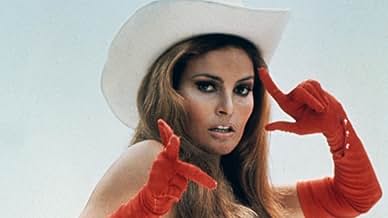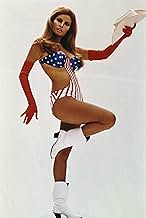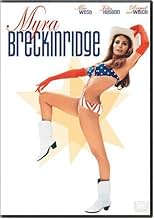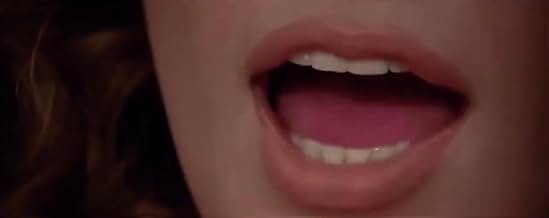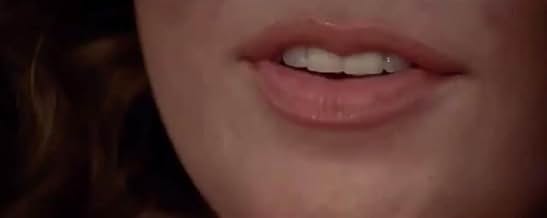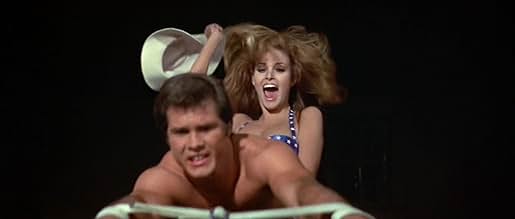IMDb RATING
4.5/10
3.7K
YOUR RATING
After undergoing gender reassignment surgery, an aspiring actress travels to Hollywood, where she also wants to make a claim on her wealthy uncle's estate.After undergoing gender reassignment surgery, an aspiring actress travels to Hollywood, where she also wants to make a claim on her wealthy uncle's estate.After undergoing gender reassignment surgery, an aspiring actress travels to Hollywood, where she also wants to make a claim on her wealthy uncle's estate.
Robert P. Lieb
- Charlie Flager, Sr.
- (as Robert Lieb)
- Director
- Writers
- All cast & crew
- Production, box office & more at IMDbPro
Featured reviews
Quite how this became Hollywood's most famously reviled and ridiculed creation is almost as mysterious as how such a bizarre film was ever made in the first place.
It's the story of a gay film critic knocked unconscious in a car accident who then dreams he has undergone a sex-change operation and been recreated in Raquel Welch's image. I managed to work that much out after two viewings, the first wondering what the hell I was seeing and the second spotting the few clues to the "plotline" that exist between the scenes of insane camp and bizarre sexual acts.
Somehow, through all the confusion and early '70s delirium, I found myself enjoying it. It is a ridiculous mess, but where else are you going to see the legendary John Huston receiving a brutal Swedish massage and Raquel Welch in glorious widescreen, Technicolor Panavision wearing a strap-on and cowgirl outfit ensemble? Not in Legally Blonde, I know that much.
It's the story of a gay film critic knocked unconscious in a car accident who then dreams he has undergone a sex-change operation and been recreated in Raquel Welch's image. I managed to work that much out after two viewings, the first wondering what the hell I was seeing and the second spotting the few clues to the "plotline" that exist between the scenes of insane camp and bizarre sexual acts.
Somehow, through all the confusion and early '70s delirium, I found myself enjoying it. It is a ridiculous mess, but where else are you going to see the legendary John Huston receiving a brutal Swedish massage and Raquel Welch in glorious widescreen, Technicolor Panavision wearing a strap-on and cowgirl outfit ensemble? Not in Legally Blonde, I know that much.
A man who wishes to become a woman wants to show the world that men are not the superior beings that they have been made out to be. To in fact do to men what men have been doing to women since the beginning of time. Is it surprising that this film is despised by so many people - especially men? The fact that this film is so threatening is a good sign that it is right on track. A handsome idiot "stud", an over-the-hill sexist cowboy wannabe and a whole stable of dumb gorgeous guys (including Tom Selleck!) show what all those fun, sexist sixties movies look like in the mirror image. For here it is the women (Myra and an elderly Mae West) who throw out the sexist innuendo and treat men like fresh meat that have little value other than what they can offer women with their bodies. The sight of an unattractive and elderly Mae West always gets the shaft by the film's critics, yet they rarely comment on the appearance of her male counterpart (played with great relish by John Huston) who also seduces (and I might add verbally abuses) women one-third his age. Hmmm. The fact that this film is so hated shows how far men still have to go before opening up their minds and really seeing the double standards that they adhere to when it comes to sex comedies. It's only when the tables are turned that one can truly perceive this - and this film does this beautifully. It is after all a satire and commentary on Hollywood (as well as on the cheesy camp classics from everyone from Roger Corman to Russ Meyer). The interspersing of classic Hollywood movies depicting this seems to have eluded many viewers since they're so used to taking such images for granted. They don't question them or even see what those classic images are really projecting.
Anyway, this is the most brilliant example of camp cinema to date. The hilarious sabotaging of scenes with reaction shots from various movie stars reflects the so-called innocence of the audience (no wonder so many people find that uncomfortable!), and the film is also choked full of famous faces parodying the very images that made them famous. It has all the camp and surreal qualities of Gore Vidal's book, and it retains most of his incredible dialogue. It is also one of the best movies about Hollywood and the jerks who work there. And last but not least, Raquel Welsh should be most proud of her performance. I cannot imagine anyone else in this role because she is not only wonderful, she completely turns the tables on the stereotypes she personified to men throughout her career. She was a wonderfully cheesy sex goddess, and here she finally has a chance to ahem, be in the driver's seat. It's all just in fun, and that's what the movie is saying. If treating women like they are just a pair of boobs is entertainment, then why can't treating men like they are just a pair of bullocks be the same?
Anyway, this is the most brilliant example of camp cinema to date. The hilarious sabotaging of scenes with reaction shots from various movie stars reflects the so-called innocence of the audience (no wonder so many people find that uncomfortable!), and the film is also choked full of famous faces parodying the very images that made them famous. It has all the camp and surreal qualities of Gore Vidal's book, and it retains most of his incredible dialogue. It is also one of the best movies about Hollywood and the jerks who work there. And last but not least, Raquel Welsh should be most proud of her performance. I cannot imagine anyone else in this role because she is not only wonderful, she completely turns the tables on the stereotypes she personified to men throughout her career. She was a wonderfully cheesy sex goddess, and here she finally has a chance to ahem, be in the driver's seat. It's all just in fun, and that's what the movie is saying. If treating women like they are just a pair of boobs is entertainment, then why can't treating men like they are just a pair of bullocks be the same?
Despite disappointing attempts to bring them to the screen, certain novels by their very nature must be considered unfilmable notably 'Catch 22', 'Ulysses' and 'Justine'. To this select group must be added 'Myra Breckinridge'. Reading Michael Sarne's pretentious, self-justifying drivel in which he states what his intentions were when filming Gore Vidal's novel, one can fully understand how he succeeded in bamboozling some not very bright men in suits at 20th Century Fox into believing that he was the man to pull it off.
Reviews on IMDb are now required to be no less than 600 characters which in the case of this opus really stretches one's creativity for there are only so many ways of saying that a film is crap.
When asked by an interviewer whether he had seen it, John Huston replied "thankfully, no", whilst Gore Vidal dismissed it as "a joke" and lamented that it caused sales of the novel to plummet. He once claimed that his proudest achievement was "never having killed anyone." On this occasion he must have been sorely tempted.
As this viewer has now exceeded the requisite number of characters he might as well end with a positive. Although I never thought I'd live to say it, Raquel Welch is really rather good in it.
Reviews on IMDb are now required to be no less than 600 characters which in the case of this opus really stretches one's creativity for there are only so many ways of saying that a film is crap.
When asked by an interviewer whether he had seen it, John Huston replied "thankfully, no", whilst Gore Vidal dismissed it as "a joke" and lamented that it caused sales of the novel to plummet. He once claimed that his proudest achievement was "never having killed anyone." On this occasion he must have been sorely tempted.
As this viewer has now exceeded the requisite number of characters he might as well end with a positive. Although I never thought I'd live to say it, Raquel Welch is really rather good in it.
When I saw 'Myra Breckinridge,' the projector broke down no less than eight times throughout the films's 94-minute duration. In most cases, this would be an inexcusable annoyance for me, but in this case, I was grateful. After every ten minute stretch of this film, I felt like I needed some respite.
The only reason to see this movie, the only thing I found remotely entertaining or funny, is to see film critic Rex Reed masturbating. Years later, Reed savaged David Lynch's 'Blue Velvet' with an angry zeal and called the movie "brain-damaged garbage" and also displayed a fragile sensitivity in denouncing the sickness of Pasolini's 'Salò.' Watching him in 'Myra Breckinridge' gives new dimensions to those reviews.
Whatever the merits of 'Valley of the Dolls,' it's a genuine camp movie because it achieves that status unintentionally. It played itself straight and failed as a drama. The intent with 'Myra Breckinridge' seemed to be, from the very start, to make the next camp classic, and so the film has no dramatic level on which to fail. It cuts straight to the camp and does it horribly.
The only reason to see this movie, the only thing I found remotely entertaining or funny, is to see film critic Rex Reed masturbating. Years later, Reed savaged David Lynch's 'Blue Velvet' with an angry zeal and called the movie "brain-damaged garbage" and also displayed a fragile sensitivity in denouncing the sickness of Pasolini's 'Salò.' Watching him in 'Myra Breckinridge' gives new dimensions to those reviews.
Whatever the merits of 'Valley of the Dolls,' it's a genuine camp movie because it achieves that status unintentionally. It played itself straight and failed as a drama. The intent with 'Myra Breckinridge' seemed to be, from the very start, to make the next camp classic, and so the film has no dramatic level on which to fail. It cuts straight to the camp and does it horribly.
Seldom seen since theatrical release in 1970, MYRA BRECKINRIDGE has become a byword for cinematic debacles of legendary proportions. Now at last on DVD in an unexpectedly handsome package, it is as unlikely to win wide audiences today as it was when first released.
Gore Vidal's 1968 bestseller was a darkly satirical statement. Most filmmakers felt that the novel's story, structure, and overall tone would not translate to film, and industry insiders were surprised when 20th Century Fox not only acquired the rights but also hired Vidal to adapt his novel to the screen. But studio executives soon had cold feet: Vidal's adaptations were repeatedly rejected and novice writer-director Michael Sarne was brought in to bring the film to the screen.
Studio executives hoped that Sarne would tap into the youth market they saw as a target for the film, but Sarne proved even more out of synch with the material than the executives themselves. Rewrite upon rewrite followed. The cast, sensing disaster, became increasingly combative. In her DVD commentary, star Raquel Welch says that she seldom had any idea of what Myra's motives were from scene to scene or even within any single scene itself, and that each person involved seemed to be making an entirely different film. In the accompanying "Back Story" documentary, Rex Reed says that MYRA BRECKINRIDGE was a film made by a bunch of people who hid in their dressing rooms while waiting for their lawyers to return their calls.
The accuracy of these comments are demonstrated by the film itself. The basics of Vidal's story are there, but not only has the story been shorn of all broader implications, it seems to have no point in and of itself. Everything runs off in multiple directions, nothing connects, and numerous scenes undercut whatever logic previous scenes might have had. And while director Sarne repeatedly states in his commentary that he wanted to make the film as pure farce, the only laughs generated are accidental.
Chief among these accidents is Mae West. It is true that West is unexpectedly well preserved in appearance and that she had lost none of her way with a one-liner--but there is no getting around the fact that she is in her seventies, and her conviction that she is the still the sexiest trick in shoe leather is extremely unsettling, to say the least. But worse, really, is the fact that West is outside her era. Her efforts to translate herself into a hip and happening persona results in one of the most embarrassing self-caricatures ever seen on film.
The remaining cast is largely wasted. Raquel Welch, a significantly underestimated actress, plays the title role of Myra very much like a Barbie doll on steroids; non-actor Rex Reed is unexpectedly effective in the role of Myron, but the entire role is essentially without point. Only John Huston and cameo players John Carradine, Jim Backus, William Hopper, and Andy Devine emerge relatively unscathed. Yes, it really is the debacle everyone involved in the film feared it would be: fast when it should be slow, slow when it should be fast, relentlessly unfunny from start to finish. It is true that director Sarne does have the occasional inspired idea--as in his use of film clips of everyone from Shirley Temple to Judy Garland to create counterpoint to the action--but by and large, whenever Sarne was presented with a choice of how to do something he seems to have made the wrong one.
The how and why of that is made clear in Sarne's audio commentary. Sarne did not like the novel or, for that matter, the subject matter in general. He did not want to write the screenplay, but he needed the money; he emphatically did not want to direct the film, but he need the money. He makes it very clear that he disliked author Gore Vidal and Rex Reed (at one point he flatly states that Reed "is not a nice person"), and to this day he considers that Vidal and Reed worked in tandem to sabotage the film because he refused to play into their 'homosexual agenda'--which, when you come right down to it, seems to have been their desire that Sarne actually film Vidal's novel rather than his own weirdly imagined take-off on it.
Although he spends a fair amount of commentary time stating that the film is widely liked by the gay community, Sarne never quite seems to understand that the appeal of the film for a gay audience arises from his ridiculously inaccurate depiction of homosexual people. When taken in tandem with the film itself, Sarne emerges as more than a little homophobic--and quite frankly the single worst choice of writers and directors that could have been made for this project.
In addition to the Sarne and Welch commentaries and the making-of documentary, the DVD release includes several trailers and two versions of the film: a "theatrical release" version and a "restored" version. The only difference between the two is that the final scene in the "restored" version has been printed to black and white. The edits made before the film went into general release have not been restored, but the documentary details what they were. The widescreen transfers of both are remarkably good and the sound is quite fine. But to end where I began, this is indeed a film that will most interest film historians, movie buffs, and cult movie fans. I give it three out of five stars for their sake alone, but everyone else should pass it by.
Gary F. Taylor, aka GFT, Amazon Reviewer
Gore Vidal's 1968 bestseller was a darkly satirical statement. Most filmmakers felt that the novel's story, structure, and overall tone would not translate to film, and industry insiders were surprised when 20th Century Fox not only acquired the rights but also hired Vidal to adapt his novel to the screen. But studio executives soon had cold feet: Vidal's adaptations were repeatedly rejected and novice writer-director Michael Sarne was brought in to bring the film to the screen.
Studio executives hoped that Sarne would tap into the youth market they saw as a target for the film, but Sarne proved even more out of synch with the material than the executives themselves. Rewrite upon rewrite followed. The cast, sensing disaster, became increasingly combative. In her DVD commentary, star Raquel Welch says that she seldom had any idea of what Myra's motives were from scene to scene or even within any single scene itself, and that each person involved seemed to be making an entirely different film. In the accompanying "Back Story" documentary, Rex Reed says that MYRA BRECKINRIDGE was a film made by a bunch of people who hid in their dressing rooms while waiting for their lawyers to return their calls.
The accuracy of these comments are demonstrated by the film itself. The basics of Vidal's story are there, but not only has the story been shorn of all broader implications, it seems to have no point in and of itself. Everything runs off in multiple directions, nothing connects, and numerous scenes undercut whatever logic previous scenes might have had. And while director Sarne repeatedly states in his commentary that he wanted to make the film as pure farce, the only laughs generated are accidental.
Chief among these accidents is Mae West. It is true that West is unexpectedly well preserved in appearance and that she had lost none of her way with a one-liner--but there is no getting around the fact that she is in her seventies, and her conviction that she is the still the sexiest trick in shoe leather is extremely unsettling, to say the least. But worse, really, is the fact that West is outside her era. Her efforts to translate herself into a hip and happening persona results in one of the most embarrassing self-caricatures ever seen on film.
The remaining cast is largely wasted. Raquel Welch, a significantly underestimated actress, plays the title role of Myra very much like a Barbie doll on steroids; non-actor Rex Reed is unexpectedly effective in the role of Myron, but the entire role is essentially without point. Only John Huston and cameo players John Carradine, Jim Backus, William Hopper, and Andy Devine emerge relatively unscathed. Yes, it really is the debacle everyone involved in the film feared it would be: fast when it should be slow, slow when it should be fast, relentlessly unfunny from start to finish. It is true that director Sarne does have the occasional inspired idea--as in his use of film clips of everyone from Shirley Temple to Judy Garland to create counterpoint to the action--but by and large, whenever Sarne was presented with a choice of how to do something he seems to have made the wrong one.
The how and why of that is made clear in Sarne's audio commentary. Sarne did not like the novel or, for that matter, the subject matter in general. He did not want to write the screenplay, but he needed the money; he emphatically did not want to direct the film, but he need the money. He makes it very clear that he disliked author Gore Vidal and Rex Reed (at one point he flatly states that Reed "is not a nice person"), and to this day he considers that Vidal and Reed worked in tandem to sabotage the film because he refused to play into their 'homosexual agenda'--which, when you come right down to it, seems to have been their desire that Sarne actually film Vidal's novel rather than his own weirdly imagined take-off on it.
Although he spends a fair amount of commentary time stating that the film is widely liked by the gay community, Sarne never quite seems to understand that the appeal of the film for a gay audience arises from his ridiculously inaccurate depiction of homosexual people. When taken in tandem with the film itself, Sarne emerges as more than a little homophobic--and quite frankly the single worst choice of writers and directors that could have been made for this project.
In addition to the Sarne and Welch commentaries and the making-of documentary, the DVD release includes several trailers and two versions of the film: a "theatrical release" version and a "restored" version. The only difference between the two is that the final scene in the "restored" version has been printed to black and white. The edits made before the film went into general release have not been restored, but the documentary details what they were. The widescreen transfers of both are remarkably good and the sound is quite fine. But to end where I began, this is indeed a film that will most interest film historians, movie buffs, and cult movie fans. I give it three out of five stars for their sake alone, but everyone else should pass it by.
Gary F. Taylor, aka GFT, Amazon Reviewer
Did you know
- TriviaIt was Lee Majors who got then-girlfriend Farrah Fawcett involved in this movie. He was sought for the role of Rusty but turned it down. However, he did introduce the producers to Fawcett, who had done several television commercials by that time, and she was hired to play Mary Ann. She later told Rona Barrett, "It was a terrible picture. But it taught me a lot about egos and star-trips. Everyone was on that!"
- GoofsApparently pieced together from different takes, Myra's blouse collar alternately appears fully outside, partially inside/outside and fully outside her jacket while she "depantses" Rusty in her office.
- Alternate versionsOriginally rated "X" when released in 1970. In 1978 the film edited to be re-rated "R".
- ConnectionsEdited from Dante's Inferno (1935)
- SoundtracksSecret Place
Music by John Phillips
Lyrics by John Phillips
Sung by Rex Reed (uncredited)
[Also sung by off-screen vocal group]
- How long is Myra Breckinridge?Powered by Alexa
Details
- Release date
- Country of origin
- Languages
- Also known as
- Gore Vidal's Myra Breckinridge
- Filming locations
- 6914 Hollywood Boulevard, Hollywood, Los Angeles, California, USA(Myron and Myra dancing on the street, Ann Miller's star on the Hollywood Walk of Fame)
- Production company
- See more company credits at IMDbPro
Box office
- Budget
- $5,385,000 (estimated)
- Runtime
- 1h 34m(94 min)
- Color
- Aspect ratio
- 2.35 : 1
Contribute to this page
Suggest an edit or add missing content


